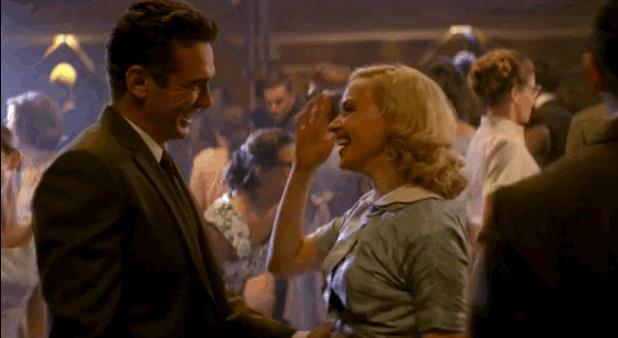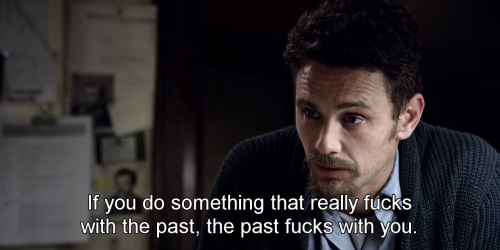Need to explain this?
Picnic at Hanging Rock and How to Narrate (Conventional) Beauty – Part I

[…] What we see and what we seem are but a dream – a dream within a dream.
1975’s ‘Picnic at Hanging Rock’ has been a great inspiration for my writing.
Yes, it’s a movie; yes, there’s also a book worth reading.

However, when your inspiration as a writer comes from more visual perspectives, you yourself tend to become a better narrator, rather than ‘just’ a good writer.
Indeed, your writing flourishes with adjectives and actions: it becomes more and more factual, real.
Even when it plays with fantasy, it brings your imagination back to something more tangible and easier to understand.

I see myself writing with tones of pale pink, white and dark orange; I see myself writing on lace and fresh linen gently touched by a breeze on a rather sunny and chilly day in February.
I see a smartly hidden gore in the eyes of a voluptuous Venus.
All my writing is an illuminating dream of dark textures and crude feelings behind an ivory façade.

– more to come.
Dumb Love and The Little (Soviet) Mermaid

How can you keep on merging poetry and imagination while something so obscene and “practical” like troops invading a country is happening under your nose?
Dunno, maybe that’s what they must have thought at Soyuzmultfilm on August 1968, when five Warsaw Pact nations – the Soviet Union, Bulgaria, Hungary, East Germany and Poland – decided to invade Czechoslovakia.

Maybe no one thought about anything.
Maybe nobody was moved by what was happening.
To me, however, it is interesting to think about what producers, actors and filmmakers might have thought.
In over 80 years Soyuzmultfilm has probably become the first and most influential animation studio of the former Soviet Union and modern Russian Federation. It has become so by producing something like 1528 films and being one of the most ethnically-integrated and artistically-free cultural industries of Russia. In addition, it has created certain iconic characters that have become an integral part of Soviet culture, such as the “socialist” and kind of depressed version of Winnie-the-Pooh and the “originals” Gena the Crocodile and Hedgehog in the Fog.

I mean, Soyuzmultfilm, before the collapse of the SU, was dope, for one thing.
One of his best Soviet productions came indeed out in 1968, long before the end of its golden (and mf socialist) era.
An animated film based on H. C. Andersen’s famous fairy tale “The Little Mermaid”, Rusalochka/Русалочка is what I consider my own personal “most worthwhile 27 minutes of life on this planet”.
Whether you are a fan of Disney‘s adaptation or not, I cannot stress enough how this movie is an actual little marvel of its own: even if there are no memorable shell-shaped bras, nor fabulous red hair (this hair look more like milky jellyfish with very long tentacles) or particularly fascinating princes (unfortunately, this one is just a dodo), Rusalochka is a tasteful charm that you just can’t unsee.

In my opinion, the charm of this film lies not only in its wonderful photography, but also in its sound and animation that harmoniously articulate all these elements in few minutes without sacrificing the poignant poetry of Andersen’s writing. Indeed, it seems to me that this quilt of geometric lines and traditional colors as well as the powerful and dramatic music, are able to perfectly convey that sense of sad inadequacy and absolute love devotion that I could read between the lines of Andersen’s fairy tale.
Out of all the topics that H.C.A. chose to write about, there is one that really pops up from the tale and the movie as well.
That is, how dumb and in love can we be sometime?
So dumb that, according to H.C.A, someone (namely, the mermaid) would freely and soberly decide to have “her tender feet” feeling “as if cut with sharp knives” without even caring for it, as “a sharper pang had pierced through her heart”.
The answer to the above-mentioned question, by the way, could be found in the following movie dialogue:
“What have you seen?”
– Nothing!
“Nothing? And what about the winter flowers on the shore of the sea? Or the birds in the sky? Or the snow-covered mountains?”
– I saw nothing… only him!
“Did you not meet the fast stallions, just sit on them while they take you to faraway lands? Did you not see the many colors of fire?”
– I saw nothing… only him!”
Doesn’t look like an answer, right?
Well, it actually is.
When we are in love, we decide to see some things and unsee some others.
We, in particular, peak what obsesses us as we turn one blind eye on all else that is beautiful and healthy for our soul.
It’s not a common rule, but sometime love is toxic.
Sometime love is a selfless and suicidal act of devotion.
Just sometime.
We did ask for a show like “11.22.63”

So, before the literal shit(storm) hit the fan for James Franco, I’ve already started binge-watching all of his filmography. All of it. Yup. Always thought the man was hella talented, so I’m still recovering from the news and allegations.
But that’s not my point.
Amidst my choices, I had this Hulu show, “11.22.63”, with not only Franco in it, but also Sarah Gadon, who I recently had the pleasure to watch on Netflix with the hunting “Alias Grace”.
So, matching my double obsession for the material (a Stephen King novel turned into a binge-watchable show) and the actors (again, Franco and Gadon), I took the opportunity of streaming it all and miserably ended by crying me a river after three days of “123movie and chill”.
As Eric Folkerth wrote on his blog WhenEFTalks, “The basic premise of the book/show is that a man in our time is given the ability to travel back through time to 1960, […] where he attempts to stop the assassination of President John F. Kennedy”, inevitably and dramatically reshaping history and his own life, too.

The show was absolutely a jem: all the actors’ top-notch performances, as well as the alluring reconstruction of a nostalgic past and a surprisingly believable alternate reality, made this little sci-fi/noir/drama more enjoyable than expected.
Thing is that, it emotionally proved me a little. Without spoiling it for you, I can tell you that by the end of the show it is likely that you feel you are rooting for all the wrong people and all the wrong causes just because you really think that everyone deserves an happy ending (“everyone”, namely, Jake Epping alias James Franco)
I bursted into tears in a very specific moment: when this precious poem I’m now posting was read out loud in a room full of people unaware of its meaning (watch the show to decipher my sentence).
The poem goes like this:
We did not ask for this room or this music.
We were invited in.
Therefore, because the dark surrounds us,
let us turn our faces to the light.
Let us endure hardship to be grateful for plenty.
We have been given pain to be astounded by joy.
We have been given life to deny death.
We did not ask for this room or this music.
But because we are here, let us dance.
Cowritten by Stephen King and Screenwriter Bridget Carpenter, the poem “We Did Not Ask For This Room” is an original for the show and it’s an incredible way to end a truly masterful work of photography.
As the poem opens,
“We did not ask for this room or this music.
We were invited in.”
As soon as I heard this very first verse, I thought “Man, this shit really resonates with me.”. Indeed, these first 60 characters mean that none of us gets to choose where, when, how long and to which extent we will live. Nobody gave us the possibility to choose our family, our loved ones or our simple preferences. We were casually “invited in” to the big party of Life.
Scary, uh?
Scary is that it seems we have no agency over our existence. I know.
But it’s not entirely like that. The thing is more nuanced. We have the opportunity to choose.
My dear Justine Levy wrote in her “Nothing serious” that Life, rather than a huge constriction, “is a rough draft, in the end. Every story is the rough draft of the next one, you cross out, you cross out, and when it’s almost right and without any misprints, it’s over […]”.
You see? Our agency is that we get to narrate our own story and we get to cross out some parts of it. We are the only ones that, by the end of our personal novel, will know how bad the draft was and how good we got to make it not for others, but for ourselves. We cross and cross, without making the bad disappear, but rather appear on a different form: a doodle that surrounds impressive paragraphs of joy.
The key is that we have to understand that no one is really forcing us to enjoy “this party” all the time. That we may feel suffocated by the absence of oxygen on the packed dancefloor to enjoy more our sigarette when we’ll get outside in the freezing January air. That it’s OK to just hate the music and some of the guests to really cherish the fact that the DJ mixed at least one decent song or that you met someone who’s worth your time and attention.
At the end, the point is that, yeah, we are here, right now, just by chance.
“But because we are here,” wrote King, we should “let us dance.”.
Or doodle.